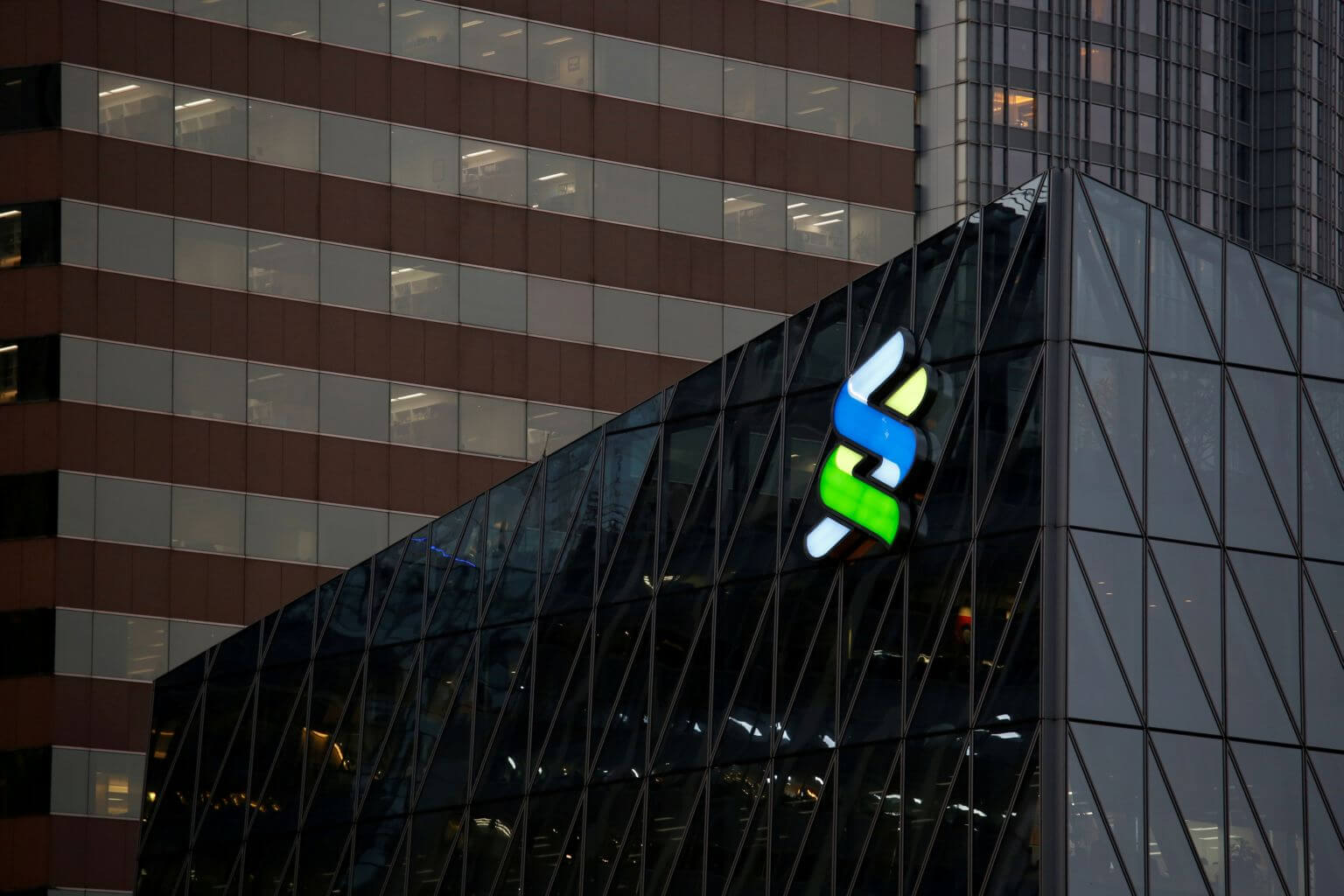StanChart whistle-blower says US missed billions in trade
Sign up now: Get ST's newsletters delivered to your inbox

The whistle-blower claims Standard Chartered's wrongdoing was more extensive than the US alleged and seeks an order forcing it to pay an unspecified additional sum to the government.
PHOTO: REUTERS
Follow topic:
NEW YORK (BLOOMBERG) - Standard Chartered Plc's transactions with Iran were worth tens of billions of dollars more than previously known, a whistle-blower said in a lawsuit claiming the British bank actively pursued Iranian business in violation of US sanctions.
The whistle-blower, a bank executive who isn't named in court papers, was the bank's global head of transaction banking and foreign exchange sales. He and another plaintiff - described only as an American currency trader - say StanChart handled more than US$56 billion (S$76 million) in transactions from 2009 to 2014, compared with US$240 million cited by the Justice Department between 2007 and 2011 in an April settlement with the bank.
StanChart's illicit trade with Iran has cost it more than US$1.7 billion in penalties from prosecutions in 2012 and 2019 by the Justice Department and regulators.
The whistle-blower claims the bank's wrongdoing was more extensive than the US alleged and seeks an order forcing it to pay an unspecified additional sum to the government.
The illicit transactions enabled Iran to aid US adversaries, the plaintiffs claim.
"Beneath the green eye-shade complexity and deception of the international financial transactions involved in this case, the unavoidable fact is that (StanChart) used its resources to help terrorists kill and wound American, British, and other Coalition military personnel and thousands of innocent civilians," they say in a complaint filed on Thursday (July 18) at the Manhattan federal court.
The bank dismissed the lawsuit as "baseless", noting that the US chose not to join the whistle-blower lawsuit. "The US authorities have been aware of these claims for several years and have not seen fit to join this suit or include the claims as part of our resolution of historical sanctions compliance issues," it said in a statement.
The lawsuit opens a window on a seven-year saga in which the StanChart executive secretly aided US prosecutors and regulators.
Just a week after the first settlements between the bank and US authorities in 2012, the executives filed a sealed whistle-blower case and met the authorities to further develop their investigation, according to the complaint. That settlement covered US$250 billion in transactions for the years from 2001 to 2007, but the whistle-blower says the true number was closer to US$280 billion.
A Justice Department spokesman declined to comment.
The FBI and Justice Department asked one of the plaintiffs to get more internal bank information from a source in Dubai, a key locus of the bank's Iran operations. Two data sticks containing 79 files detailing thousands more illegal transactions were turned over to the FBI, according to the complaint. The whistle-blower's lawsuit was dismissed in 2017 and refiled last year, and was unsealed this month.
The plaintiffs brought the case through a holding company called Brutus Trading.
The prior US enforcement cases focused on Standard Chartered's method of "stripping" identifying Iranian information from payment messages.
The suit claims the bank used other methods to process - and hide - Iranian business. Iranian clients were allowed to conduct transactions through a currency trading platform that was designed not to maintain records of illegal transactions, Iranian transactions were parked in so-called sundry accounts where they would remain undetected, and Iranian accounts were placed under another business unit to conceal their existence, according to the complaint.
The plaintiffs also claim StanChart's pursuit of Iran business was "no haphazard affair".
Instead, it involved senior bank executives who actively sought to recruit clients blocked from the US financial system, an effort dubbed "Project Green".
Among them were the National Iranian Oil Company and National Iranian Tanker Company, as well as several banks and a unit of Mahan Air, an Iranian airline the US suspects of aiding the country's ballistic missile system.
"Project Green was designed to assist, conspire, aid and abet non-United States customers that have been made the subject of United States economic sanctions to evade those sanctions and engage in international financial transactions," according to the complaint.

